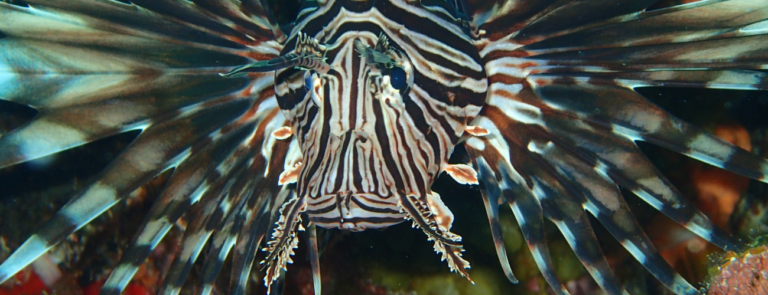Since its accidental introduction to the Atlantic in the 1980s, the Indo-Pacific lionfish (Pterois volitans) has become one of the greatest threats to the resilience of Caribbean reef systems. With extremely rapid reproduction and few natural predators outside its native range, lionfish populations have exploded across the Caribbean, devastating fish and invertebrate communities on coral reefs throughout the region.
Lionfish are a particular menace for Belize, a small country where fishing and marine tourism support the livelihoods of over 15,000 people and contribute 25% to GDP. Whilst eradicating lionfish is not possible, recent research has shown that suppressing populations on coral reefs allows native marine species to recover. To do so requires significant and consistent removal of lionfish at scale, with the engagement of all reef stakeholders.
As outlined in the Mesoamerican Reef Lionfish Strategy, lionfish control must be addressed differently in areas accessible to fishers, No Take Zones and the deep sea. Although the latter is a bit out of our depth (pun intended), we are currently partnering with the Belize Fisheries Department to develop the national strategy for lionfish control in areas accessible to fishers and within No Take Zones.























